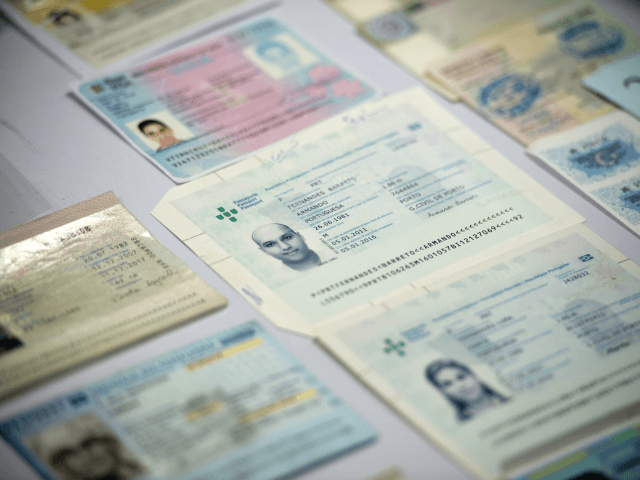The number of migrants attempting to enter Germany by aeroplane using forged or fake passports has increased by 70 percent in the second quarter of this year, as they try to get out of crowded Greek camps.
Asylum seekers stuck in Greece are trying new and inventive ways to circumvent the strict border controls that have prevented them from reaching countries like Germany. The European Union police agency Europol and border agency Frontex now claim that more and more migrants are flying in on forged passports rather than going by land north through the Balkans, Die Welt reports.
The EU agencies say that in the first quarter of 2017 there were 429 cases of migrants arriving from Greece to other EU countries with fake passports. In the second quarter of 2017, the number had risen to 729 cases or a 70 percent increase.
The fake documents were found among several nationalities including Syrians who primarily used Greek and Italian identification or German and Syrian passports. Afghan nationals were mostly found in possession of forged French identification cards or Korean passports.
Along with Germany, the migrants were found trying to get to Italy, the Netherlands, Belgium, and Switzerland.
Asylum seekers have been attempting to leave Greece for western Europe since the closure of the Balkan route and the erection of the border fence in Hungary that the Hungarians credit for reducing illegal mass migration by 99 percent.
Despite the closure of the route and the EU-Turkey migrant deal, the number of migrants arriving in Greece has continued to grow, albeit at a much slower pace than 2015.
As a result, many of the Greek islands that house migrant camps have started to overflow as they can not cope with the number of migrants and the new arrivals. Pro-migrant NGOs have demanded that Greece allow migrants to travel to the Greek mainland while others have protested in Athens outside the German embassy calling on Chancellor Angela Merkel to “open the doors.”

COMMENTS
Please let us know if you're having issues with commenting.